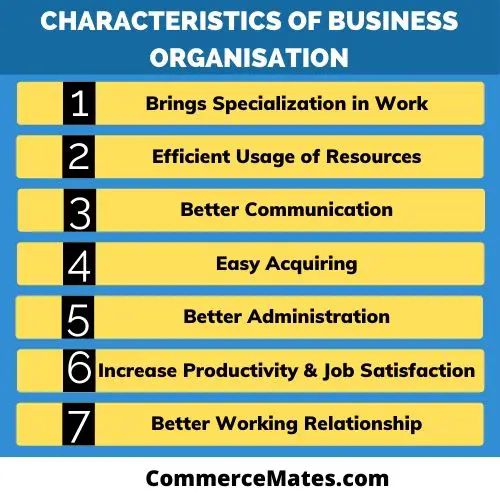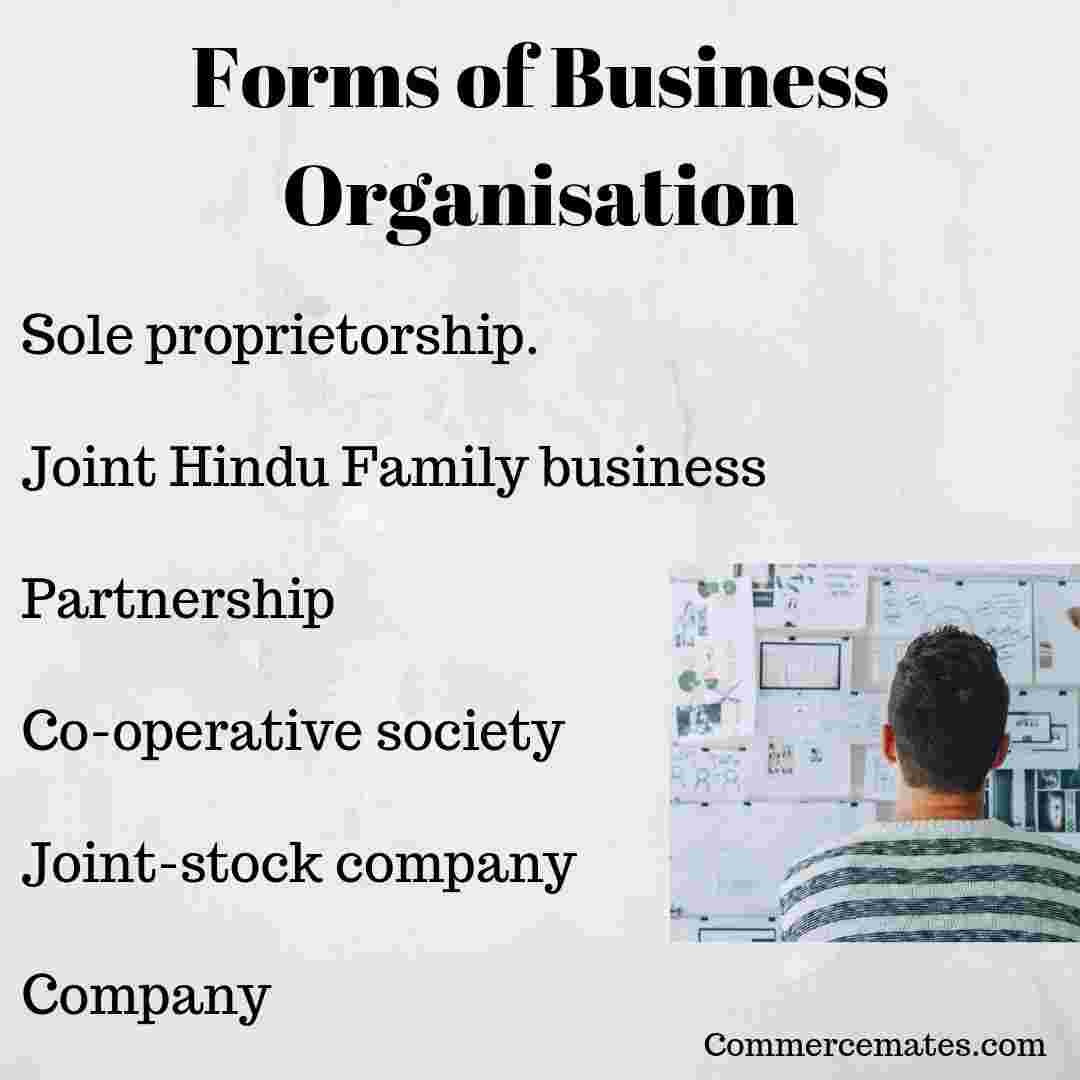Contents
What is Business Organisation?
Business Organisation is one which performs commercial activities for earning the profit. It provides goods & services to customers as per their needs. These have a well-defined structure and works according to that. The size of the business organizations differs as per their objectives. It aims at achieving a healthy relationship between employees, tasks, and various resources so that they can work together to achieve common goals.
It may be found & run by one or two or more persons. These runs to provide goods and services to people in exchange for payment. In simple words, it is termed as legal set up of business. These have certain laws to follow which differs as per region.
These have certain laws to follow which differs as per region. It tells the way how the business will achieve its objectives. Every business activity goes in line with these laws. It also tells whether the business is for-profit or not-for-profit.
Characteristics of Business Organisation
Brings Specialization in Work
This is one of the important functions of organising as a specialization of work leads to an increase in efficiency and reduce the wastage of resources. This function is done by dividing the whole task into small units and these units are then allocated to different people who when performing the same task again and again over become specialize in a particular task. This specialization increases the overall efficiency and leads to an increase in the profits of the company.

Efficient Usage of Resources
The organization helps in fuller utilization of resources thereby increasing overall efficiency and avoid any wastage of resources. This efficiency is achieved by allocating the right job to the right man according to their skills so that they can perform their duties with high efficiency.
Better Communication
Organising plays a very effective role in promoting coordination among different sections of the organisation. This coordination in the organisation helps in better and convenient communication among different peoples working there. Any important message or instructions can be easily convened to all the people working there.
Easy Acquiring
Organising helps in easy acquiring of changes according to environmental needs. For the better and flexible functioning of the organisation, organising always aims at easy and fast modification of the structures of the management. Also. it provides for the way that helps in continuous and stable growth despite various changes.
Better Administration
Organising is the one which is solely responsible for bringing coordination in the organisation. It brings together all those departments which are performing the same task which makes it very easy to control their functioning and performance. This way organising through the coordination of all activities helps in better administration.
Increase Productivity & Job Satisfaction
An organisation which is properly organised will automatically be able to increase its productivity and also be able to lower its cost. Also when a task is provided to the employees according to their skills, this brings more and more efficiency in their performance and they become expert in their task. Therefore proper and systematic organising lead to increase the overall productivity at lower costs.
Better Working Relationship
Proper organising helps in proper defining of the relationship between various employees in an organisation. Authority and responsibilities of different people in the organisation are very well defined which clearly shows their roles. Thus this better relationships among people in the organisation ultimately help in achieving maximum efficiency at a lower cost.
Forms/Types of Business Organisation

Sole Proprietorship
It is a one-man business and is owned by a single person. There is only one person to manage and run the business. It is very easy to set up and requires less cost among all. It is suitable for small businesses setup.
It avoids the cost of creating a corporation or partnership. Here the owner faces unlimited liability. Creditors can take personal assets of the owner if the business does not pay debts.
Advantages and Disadvantages of Sole Proprietorship
Joint Hindu Family Business
It is the different form of business which exists only in India. It is not legal in the rest of the world. It is run and governed by the Hindu law. The eldest member of the family is head of a business.
The head of the business is called ‘Karta’. He manages all the finances of the business. Family members are the co-partners of business.
Partnership
It is a business which is owned by two or more persons. They together contribute resources for the business. The profit of the business is divided by these partners.
Generally, in partnership, all partners have unlimited liability. They all are equally responsible for business debts.
Co-Operative Society
It is a business which is run by a group of persons. It is operated by them for their mutual benefit. These persons are called members of the business. It may be corporated or in-corporated.
Its members join the business by their own choice. Membership is open for all who have common goals. Minimum 10 members are required for this business. Profit of the business is divided among its members.
Joint-Stock Company
It is a business which is owned together by its shareholders. Shareholders are the one which buys some stock in the company. Profit is provided to them as per their shareholdings.
These persons join the company as per their choice. Finance of the company is provided by shareholders. These shareholders can transfer their ownership to another person.
Company
It is a business which sells goods for earning money. It is run by two or more persons together. The profit is also divided by these persons. All its members are responsible for its debt and operation.
There are certain which governs the working of companies. Every company has its own mission & objectives. All its members work hard to achieve these goals.